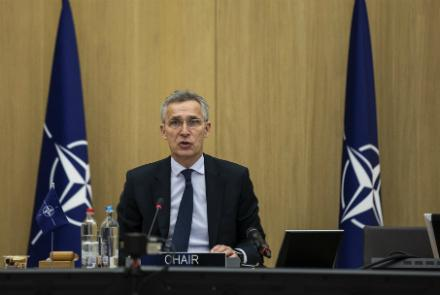NATO Chief Reiterates Call for Afghan Ceasefire

NATO Secretary General Jens Stoltenberg, at the first session of the NATO foreign ministers meeting on Tuesday, said: “We call on Taliban to reduce violence, but of course, that’s only the first step.”
“What we need to see is a lasting peace agreement. And part of that has to be a ceasefire. So, the reduction of violence should only be the first step,” Stoltenberg said, adding that “The ambition is intra-Afghan peace solution. And, of course, that has to include a comprehensive ceasefire.”
He said that NATO supports the Afghan peace process and, as part of that, NATO adjusted it’s presence in Afghanistan.
“While United States has decided to further reduce its troop numbers to 2,500, NATO’s training mission continues. And over half of our forces are, now, non-US. Ministers made clear that all Allies remain committed to the mission. And to supporting Afghan security forces in the fight against terrorism. As we continue to assess the situation in Afghanistan, it is clear that we will face a turning point early next year,” he said.
Once again, he said: “If we stay, we risk continued fighting. And an even longer-term engagement.
If we leave, we risk Afghanistan once again becoming a safe haven for international terrorists. And the loss of the gains made with such sacrifice.”
“So there is a price for staying longer. But there is also a price for leaving too soon. We will have to take some hard decisions when NATO defence ministers meet next February. But whatever we decide, we must do it in a coordinated and orderly way,” he added.
He also mentioned that all the NATO allies including the US are committed to continuing support for the Afghan security forces.
“For nearly two decades, we have helped to train and support the Afghan security forces. And we recently decided to continue the funding for the Afghan security forces throughout 2024,” he further said.
“Then we also, of course, have stated many times that we will not stay in Afghanistan with our military presence for longer than necessary. And we welcome the fact that for the first time in these two decades, there are now direct talks between Taliban and the Afghan government,” he added.
